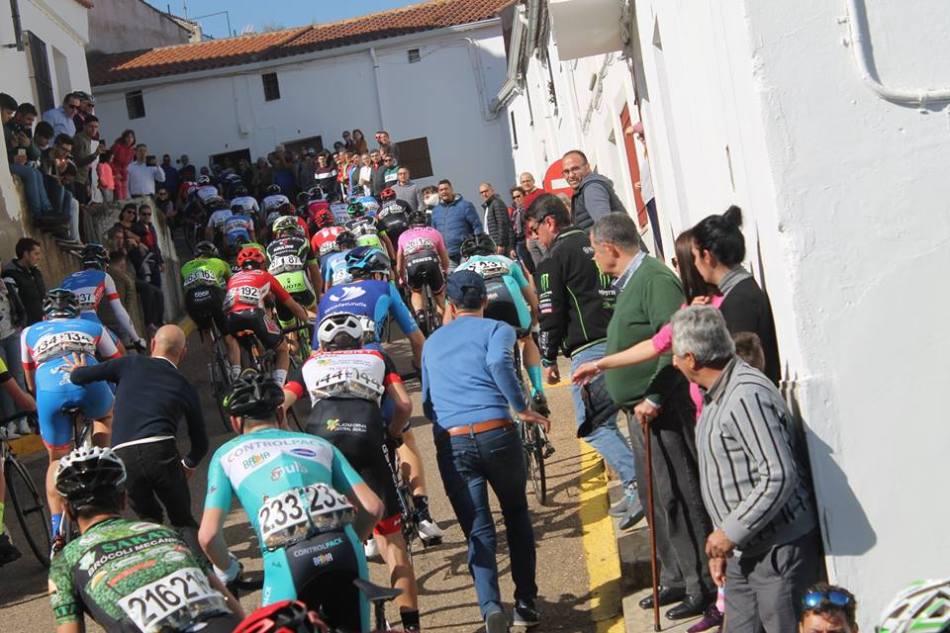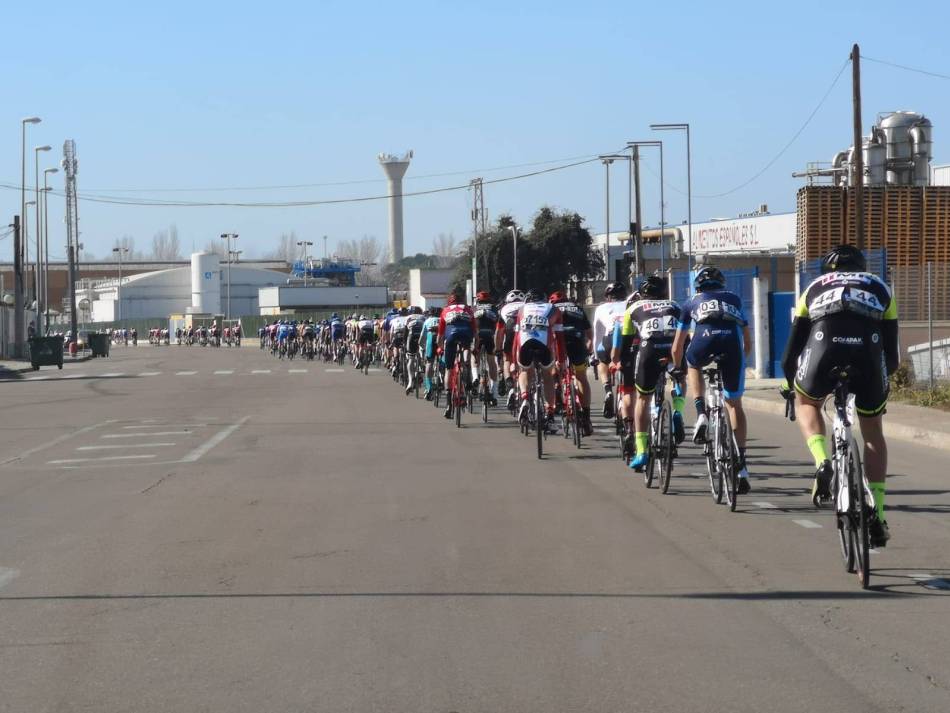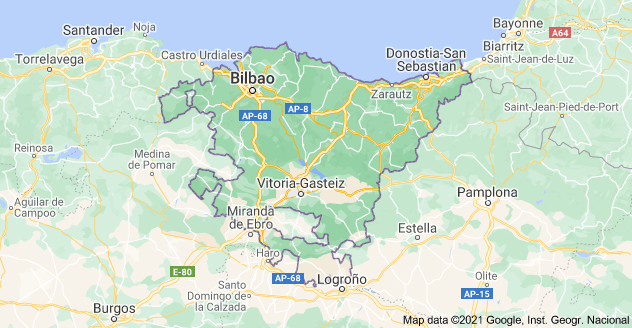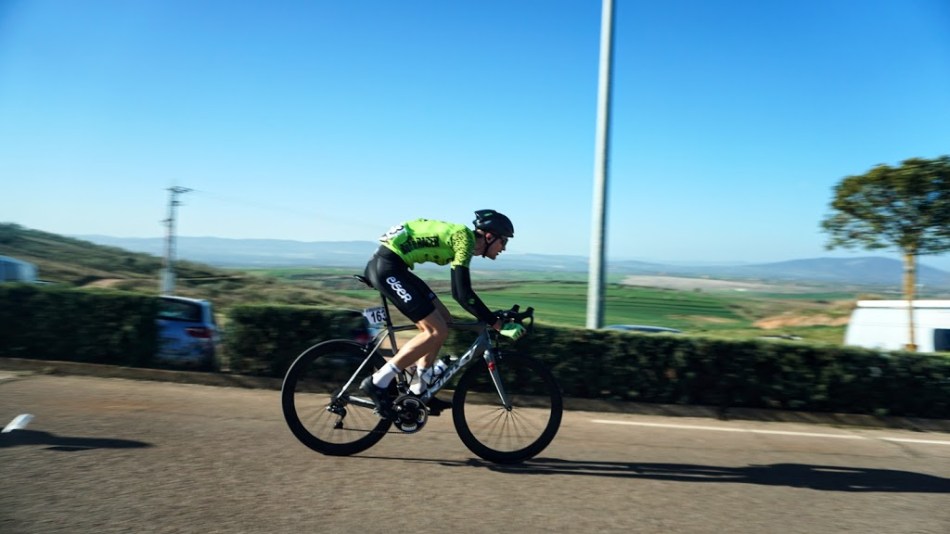George Jary’s guide to young riders on how to race in Spain and how to find a team
This article was written by George Jary for The British Continental. You can read the original article here.
This season there are 10 British riders racing full time for Spanish teams; 3 of us are supported by the Dave Rayner Fund. Hopefully the following will serve as a helpful resource for any other young riders looking to race in Spain.
Two years ago I wrote about the structure of the Spanish calendar. I explained how to find races on the regional websites and wrote in more detail about the most important races. In this guide, however, I’ll focus more on how to race in Spain; the paperwork you need and the different level of races. Then, in the second half, I offer my advice on how to find a team.

What you need
- A valid UK racing licence
- A letter of authority to race in Spain from British Cycling (email [email protected] and ask for one)
You can race in Spain on your British Cycling licence and even earn BC points from the races – just email [email protected] with the details of the race and the results. If you are in a team you’ll be provided with an authorisation from the Spanish cycling federation (the Real Federación Española de Ciclismo or RFEC, for short), which you’ll have to sign. If you are racing as an individual you can get the same authorisation by contacting the cycling federation of the region you plan to race in. More on this later.
The categories
In the UK we are used to a points system which organises amateur riders into 5 categories: 4th, 3rd, 2nd, 1st and Elite. Races then are set up for riders of each category. In Spain, however, no such system exists. The races are instead organised into age categories. Up to the age of 23 these work in the same way as we have in the UK; two-year categories unil the age of 18 when riders enter the 4-year U23 category.
Once no longer an U23, i.e. the year they turn 23, Spanish riders get an Elite licence. In the UK, Elite is the very top ameteur category, but in Spain anyone can be an Elite once over the age of 23. Generally, amateur races in Spain are listed as Sub23/Elite. This means U23 riders can enter along with Elite riders, races then specify the age limit. Some races limit to the age of 26, so riders can enter up to their 3rd year as an Elite, others have no upper age limit.
When you reach the age of 30 you can enter master’s category races but you remain an Elite, there is no maximum age for an Elite rider.

The races
Although anyone over the age of 18 is able to obtain an Elite or U23 (Sub23 in Spanish) licence, regardless of their level or experience, top level races restrict entry to riders in invited teams. The highest level amateur races, those that any Dave Rayner Funded rider or rider aiming to progress in the sport should be aiming to ride, are the Copa España races, stage races and some one day “classics”. All of these races can be found on the RFEC calendar. In my post from 2017 I go into far more detail on these races.
You can enter lower level races as an independent rider, for your current club or team. Some of these are listed on the RFEC calendar as 1.12.5 category. But most can only be found on regional calendars. To find these you simply search federacion ciclismo followed by the name of the region, for example federación ciclismo Castilla y Leon. From there you’ll be able to find a calendar of events and information on the races as well as results.
The amateur calendar is organised as follows:
- Copa España – 8 races from March to May, all over Spain. Invitation only, 7 riders per team up to the age of 26, so first, second and third year Elite riders. A minimum of 4 riders per team must be U23. Races can be found on the RFEC calendar. Example: GP Macario (the 8th in the series)
- Stage races – Invitation only, from May to September. Age restrictions vary. Found on the RFEC calendar. Example: Vuelta Navarra
- One-day classic’ races – Races held throughout the year, invitation only, some with no age restrictions, others with minimum U23 rider requirements, some U23 only. Some of the bigger races are found on the RFEC calendar.
- Basque races – the Basque country offers two calendars, a U23 series and a U23/Elite series which is up to the age of 26, like the Copa España. No invites are issued for these races, any team or individual rider can enter. These races are found only on the Basque cycling federation website, but some rounds attract the same level of participation as a Copa España race. These races are an exception to the rule of more important races being found on the RFEC calendar.
- Local Sub23/Elite – Found only on regional calendars, you can enter as an individual.
- Socials or Open races – Open to all ages, these races can only be found on local calendars.

The Basque calendar
The Basque Country is the heartland of bike racing in Spain. The amount of well organised amateur races happening in such a small area is comparable only to Flanders. The two Basque series Lehendakari (U23) and Euskaldun (U26) series run from March to September. There are also 3 stage races and 3 rounds of the Copa España in the Basque regions of Gipuzkoa, Navarra, Alava and Bizkaia. An U23 rider could ride over 50 race days per season without leaving Basque Country.
Finding a team
Putting together a CV of your best results and sending it to teams’ email addresses and social media is a good place to start. Messaging British riders already in Spanish teams and asking for an email address of the boss also works. Teams in Spain are increasingly following the British junior scene, so if you have managed any results in the junior road series, particularly the Junior Tour of Wales, be sure to let them know. Teams are very used to contact with foreign riders and are prepared to take a risk on anyone.
When speaking to a team you can find out about their race calendar. From this you’ll get an idea for when you need to be in Spain and where best to base yourself. Lots of teams have accommodation for foreign riders but even if a team doesn’t it is still worth letting them know if you’re looking for somewhere to stay. Someone on the team will likely be able to help you out with finding a flat or maybe help you organise sharing with other foreign riders.
If you are told there is no space in a team, take no notice. Instead you can try offering to help cover some costs like bringing your own bike. While it is important not to commit to a team until you are sure, there is no need to write off any options. Riders drop out all of the time so let them know you are just an email away if their roster changes and a space opens up.
Try to avoid giving your word until you are certain you’ve found the right team. Teams talk to one another, so if you make an agreement with one and speak to another you could end up with nothing. Not to mention the fact that messing teams around closes doors for other foreign riders in the same position as you.
Racing as an individual
If finding a team is proving difficult, another option is to ride some of the races as an individual.This is the best way to get on a team’s radar, often teams will sign riders in the middle of the season if they’ve performed well riding as an individual.
Racing solo is something I did while riding for Escribano, when I wasn’t selected for a Copa España or when we didn’t have a race planned. I’d say the Basque races are the best to ride as an individual: they are all close together and they are well respected but have a laid-back atmosphere. Riders from different teams often get coffee together before the race and there is more of a social attitude. In my case, once teams knew I was on my own they’d offer to give me a wheel if I punctured or let me change in their van.
To race in the Basque series you need to send in a copy of your licence and letter of authority from British Cycling along with an email explaining which races you’d like to compete in. The Basque federacion will then process your request and notify the organisers. On the day of the race, just like in the UK, you’ll need to show your race licence to the commissaires who will give you a number to pin on. Apart from renting your race transponder for 5 euros per event or 15 for the season, it’s free to race.
If you are looking to enter as an individual in another part of Spain the process is largely the same. Once you’ve sent off your licence and letter of authority you’ll also be asked to sign the authorisation from the RFEC. I’d advise double checking which races you are able to enter as an individual with the local federacion as races outside of the Basque country are less used to foreign riders entering without a team.
Guesting
Guesting for teams is also an option: you can ride some races as a trial for a team who may want to sign you for the rest of the season or for the following year. Guesting is something I can’t recommend enough, particularly for first year U23 riders. Living abroad for an entire season is a big commitment, so getting a taste of it for a few months is a good halfway step. Often, teams may be more interested in signing you later in the season when there are more races, so guesting could even increase your options. For guesting, it’s best to look for a team that has team accommodation, something you can ask them about.
Spain or elsewhere?
I’ve enjoyed my racing here but I have found the calendar has it’s disadvantages when compared to other cycling nations such as Italy, France and Belgium.
The first of these is lack of variation to the races. In Spain there are next to no time trials and even the flattest races would be considered at least “hilly” by British standards. This means you end up with a lot of the same sort of races which favour the same type of rider, climbers.
The second main disadvantage is that there are no UCI U23 races in Spain. In France and Italy, the UCI U23 races such as Ronde de L’Isard or the Baby Giro are watched closely by professional teams and reported on globally. A good ride in one of these races puts you in the World Tour shop window.
That said, teams who dominate the UCI U23 scene are always given a good race when they come to Spain. Lotto Soudal U23, the UCI development team Centre Mondial du Cyclisme and Colpack raced in Spain at the Bidasoa Itzulia and the Vuelta Navarra last season. Likewise the Movistar development team; Lizarte, Contador’s U23 set up Kometa and the Fundacion Euskadi team seemed to hold their own when they were invited to some of last season’s UCI U23 races. So clearly the level isn’t any lower in Spain.
The lack of UCI recognised U23 races is more down to the fact that race organisers are slow to adapt. Regularly at a race, I’ll notice the Roman numerals on the programme indicating its age and it’s not unusual to be riding the LXXX (80th) or CXV \(115th) edition. Generally races have always been organised by the same club or regional cycling federacion who likely see no need to fix anything that isn’t broken.

Over to you
If you’re a keen young rider and have made it this far, hopefully you now have enough information to seriously consider racing in Spain.
If you’re not a keen young rider, and you’ve made it this far check out the Dave Rayner Fund website. The fund has made it possible for me and over 250 other young riders to race in Europe over the past 23 years.
Featured photo: Martin Early